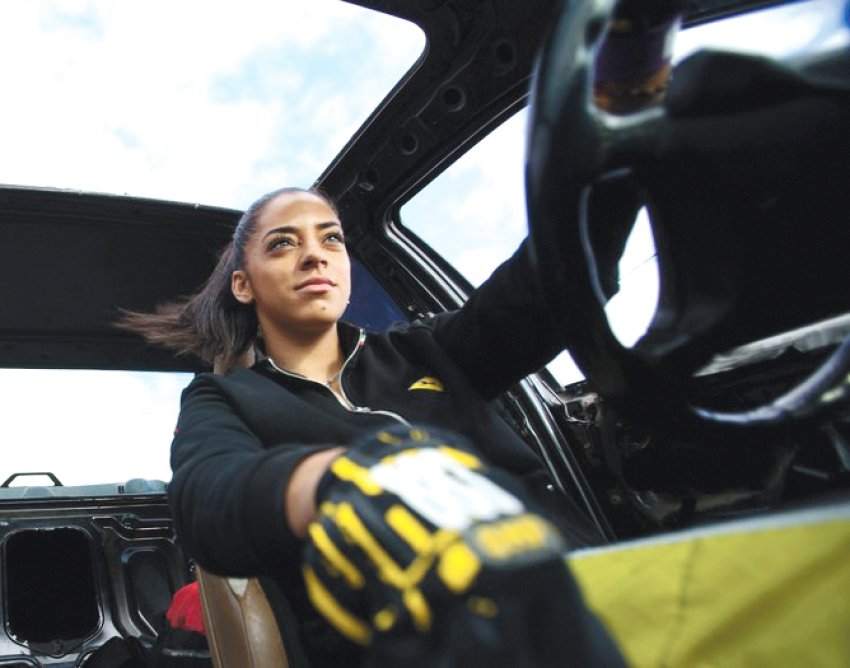
Noor Daoud was the only woman to take to the track in Egypt’s Red Sea resort of Sharm el-Sheikh, where the Palestinian car racer impressed the crowds with her “drift” driving skills.
On Palestine’s streets, Daoud mastered the art of drift — deliberately oversteering to make the rear wheels skid —and travelled to Sharm el-Sheikh for a regional competition.
“Since I was little I’ve become used to meeting up with the guys to play football or tennis,” said the 27-year-old on the sidelines of the competition.
Racing now dominates her life, she explained after she zigzagged in Sharm el-Sheikh around the tarmac track and dodged obstacles as thick white smoke and sparks came off her car.
“When I was little, I loved cars and I had a collection of them to play with,” said Daoud.
She wishes other Arab women would take part in professional competitions. “Let Arab girls show the world that we also follow our dreams,” she said.
“There's only one girl!” said a young enthusiast of drift, which emerged in Japan in the 1970s, at the contest in Egypt.
Competitors were judged by a professional panel on their style and their driving skills, which count as much as their speed.
There are however more women racing cars in the region, including four other Palestinians who featured alongside Daoud in a Speed Sisters documentary.
It has been more than a decade since Daoud first raced, borrowing a car from her mother who she credits as being the sole supporter of her ambitions.
She learned drifting “on the streets of Palestine” in 2010, before moving to Dubai where she now lives.
“At first, in Palestine, people would say to me: ‘But what are you doing? The sport is for the guys!’” she said. “I went for what I want, I didn’t listen to anyone... When I got successful people started to respect me (and say) ‘wow, she did it!’” added Daoud, who regularly takes part in international competitions.
But drifting is more than just sport and spectacle for Daoud.
“We are under occupation so this helps us, it helps me to drive to feel free,” she said. “I want to show the world that just because we are under occupation, it doesn’t mean we will stay holed up in our homes.”
[Abridged from TeleSUR English.]